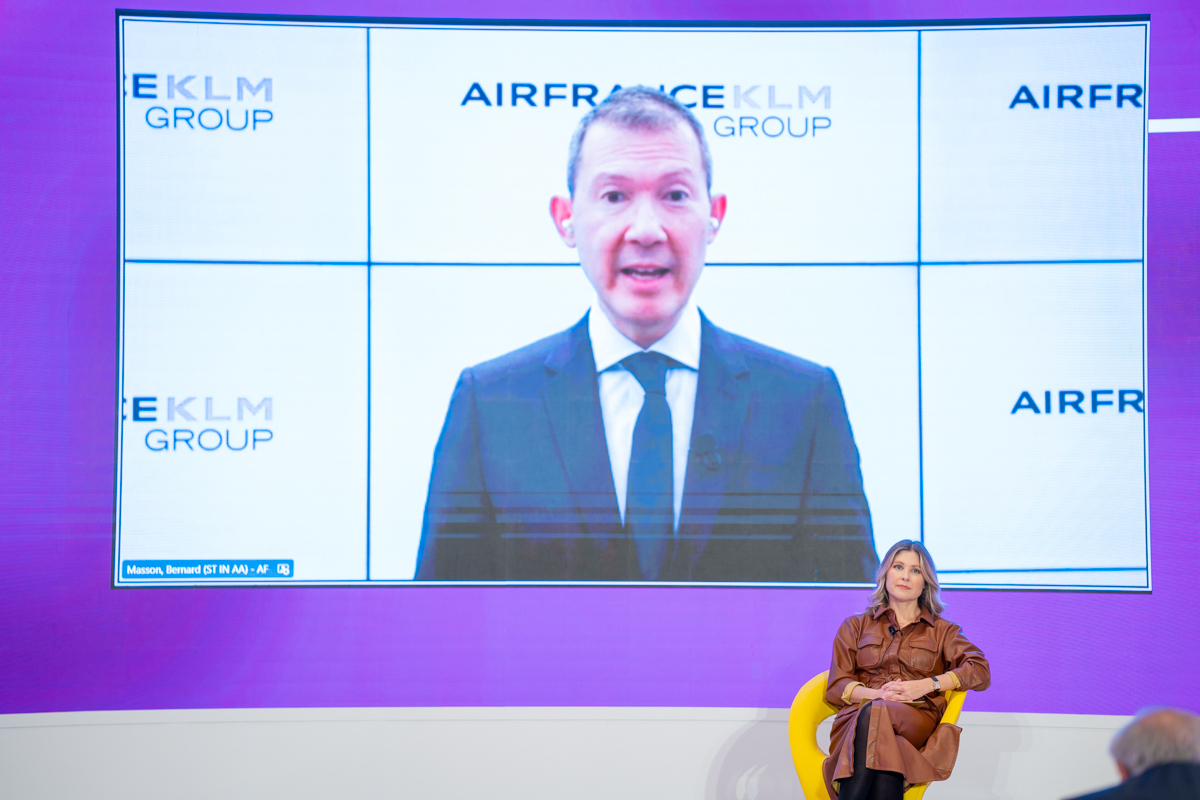Skift Take
Air France-KLM found a "low-risk way" to participate in European airline consolidation with its SAS deal, even as it waits a bit longer for a chance at prize TAP Air Portugal.
Aviation investors will have to wait a little bit longer to get a piece of TAP Air Portugal. The carrier’s long-awaited privatization is delayed up to a year following the recent sudden resignation of Portugal’s prime minister.
Speaking at the Skift Global Forum East in Dubai on Wednesday, Air France-KLM CEO Ben Smith said the sale of state-owned TAP was postponed by 9-12 months due to the change in government. Group executives, including Smith, had previously expressed a keen interest in buying the airline multiple times.
TAP’s Lisbon hub, which is close to Latin America and parts of Africa, is of interest to all three big European airline groups — Air France-KLM, International Airlines Group (IAG), and the Lufthansa Group.
The Portuguese government of former Prime Minister António Costa launched the sale of a 51% stake in TAP in September. The aim was to finalize the terms of the deal by year-end, and seek official bids early in the new year.
However, Costa resigned in November after being implicated in a corruption probe.
SAS: A ‘Low-Risk Way’ to Consolidate
SAS is “a low-risk way of participating in consolidation,” Smith said of Air France-KLM’s deal to buy a nearly 20% stake in the Scandinavian airline.
The group only has $145 million on the line today but the option to take full control of SAS in two years as part of the consortium recapitalizing the airline through its U.S. Chapter 11 restructuring. Air France-KLM joins Castlelake, Lind Invest, and the government of Denmark in the nearly $1.2 billion deal.
Both IAG and Lufthansa Group are also participating in consolidation but at a higher opening prices. The former wants to buy Spain’s Air Europa for €400 million ($432 million) and the latter a 49% stake in Italy’s ITA Airways for €325 million.
The upside is significant for Air France-KLM. Not only do they gain a much larger foothold in Scandinavia that, despite its smaller population, is rich in corporate travel, the group also expands its lucrative transatlantic joint venture with a fifth member after Air France, Delta Air Lines, KLM, and Virgin Atlantic. Smith described the transatlantic market as the “number one international market to and out of Europe.”
And then there is the benefit of scale, which is the number one reason for airline consolidation. Greater scale gives airlines more levers to boost revenues — lucrative loyalty programs only get more lucrative the larger they are — and greater leverage to drive down costs.
Oh, and in the event the Dutch government does cut flights at Amsterdam’s Schiphol airport — plans are on hold for now — SAS gives the group another hub to funnel traffic through to Asia and points east.
Optimistic for 2024 Travel
“We’re quite optimistic that 2024 will be quite strong,” Smith said of the outlook.
Travel demand has recovered across all of Air France-KLM’s network with the exception of the French domestic market where there has been a big shift to train travel, he said. Corporate travel volumes have stabilized around 70% of 2019 levels but the increase in leisure and other trips make up the difference.
Air France-KLM anticipates ending the year flying about 95% of what it flew in 2019, and to fully recover next year.
Skift Global Forum East in Dubai:
The Daily Newsletter
Our daily coverage of the global travel industry. Written by editors and analysts from across Skift’s brands.
Have a confidential tip for Skift? Get in touch
Tags: air france-klm, airlines, ben smith, business travel, consolidation, mergers and acquisitions, sas, sgfe2023, TAP Air Portugal, tourism
Photo credit: Air France-KLM CEO Ben Smith. Skift
